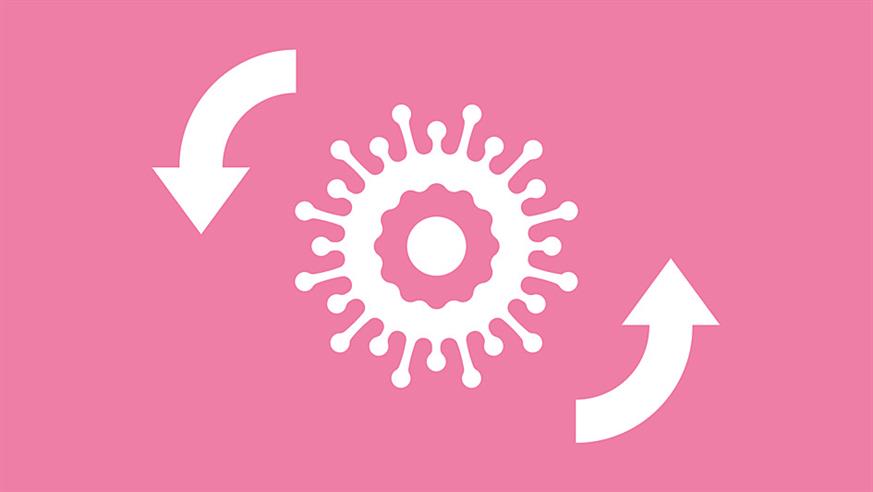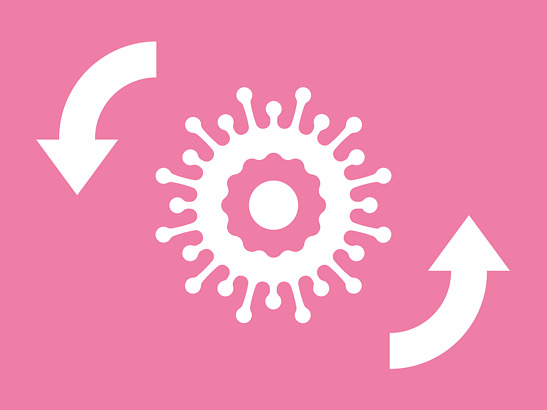
Lockdown across the globe as a result of the COVID-19 pandemic has ground the world as we knew it to a halt. Over the last few months, the pandemic has collectively caused the world to suffer, but has also perhaps offered a chance to take stock. At some point we will recover – and cancer research is no exception. One of the few upsides of the downtime has been an opportunity to reflect, and reboot or restart with ambitious new plans.
Making better use of public health
One thing that the COVID-19 pandemic has made absolutely clear is that public health measures can rapidly effect change. While cancer is not a communicable disease and interventions like physical distancing that flattened the curve for COVID-19 will have no effect, it shows the power of government-backed initiatives embraced by the public.
Has smoking not killed more than the current pandemic over the years? We document the rise of obesity and its associations with various cancers and know sunburn leads to skin cancer, yet are afraid to legislate harder for fear of being labelled a nanny state. Can research into behavioural modification and policy change be strengthened so we can tackle these elephants in the room?
Communicating science
Prior to the lockdown there were questions in the research community about the challenges raised by peer review of our publications, including concerns about the arguably unreasonable demands posed by some reviewers which have led to a rise in the use of non-peer-reviewed preprints.
We have seen the best and worst of this process during the pandemic. The rapid dissemination online, pre-publication, of parts of the COVID-19 genome was hugely beneficial to researchers.
However, well-intentioned but poorly thought through, non-randomised studies of chloroquine/hydroxychloroquine, published on preprint servers without peer review, have led to little conclusive scientific data and widespread use drugs which are yet to be proven to work for viral infections.
Maybe the answer is larger numbers of professional editors and peer-review being written into job descriptions of researchers to meet the urgent needs of the formal peer process.
Could online preprints have a time stamp and be removed after six months? There is risk of a huge ‘biomass’ of non-peer reviewed literature accumulating on the web which can be cherry picked by those so inclined, to the detriment of scientific progress.
There is also a rise of social media misinformation and trolling by vaccine deniers and peddlers of quack remedies. Research communities have not traditionally got involved in combatting this as it was considered to be the realm of fringe elements with no influence – but social media is changing this. Researchers have to participate in public engagement if rational science is to survive.
Democratising research
The rise of top-down mega-grants directing fields of research and mandating that multiple labs work together is meant to democratise science and promote large, ambitious ‘moonshot’ projects. It does not address the issue that the power to make decisions is concentrated in too small a pool of scientists.
Is there a way of democratising the process further with cross-disciplinary peer review and inclusion of postdocs or even PhD students on grant panels? If double blinded and anonymised it could work, and after all many significant advances in science were driven by scientists below the age of 35.
Securing funding for research
Funding for science is going to be a real issue post pandemic, as we draw from limited government pots and top-ups from charity depending on the good nature and financial means of citizens. Why not think out of the box?
Following the last recession, against all odds, it was possible for governments to mandate banks to be adequately capitalised if they wanted to conduct business. Could the pharmaceutical or for-profit healthcare industry be mandated put in a portion of their research or marketing budgets (not profits) into funding bodies to administer? After all, advancement in science benefits all.
We've lost many vital research hours to the coronavirus crisis but the need for our work continues to grow. Please help us kick-start our research to make up for lost time in discovering smarter, kinder and more effective cancer treatments, and to ensure cancer patients don't get left behind.
Working across boundaries
Tackling the COVID-19 pandemic has required the resolve of researchers from multiple strands of science – with structural biologists, chemists and pharmacologists joining forces with immunology and virology colleagues in fighting to find cures or prevention strategies. Such collaboration is very positive for science and should be encouraged and not be allowed to peter out once the pressure of the current crisis eases.
Avoiding diminishing returns
In recent history, a particular field of research in cancer medicine often yields rapid outputs for a decade and then a further set of outputs with diminishing returns in the second decade. In the two decades in the current millennium, the first was dedicated to targeted therapy where rapid strides were made and then no less important but less frequent discoveries were still made in the second decade.
Interestingly the second decade of the current millennium bought rapid advances in modulating the immune system and no doubt a further decade will lead to further new therapies – but the low-hanging fruits have been picked and further output is not immune to the law of diminishing returns.
So what are the new fields of cancer research that we can horizon scan and focus on when we push the reset button?
Stroma – Although vasculature and the immune system have been targeted, there remains a lot to understand and exploit in the other cells constituting the stroma, which make up an important part of the microenvironment around tumours.
The degron – The understanding of the ‘degron’ and the capacity of both normal and cancer cells to degrade proteins has only started to be exploited. It could be an exciting new way to target proteins that drive cancer.
Evolution – Huge effort and funding have gone into documenting both spatial and temporal variation within cancers. It is time to better understand the rules of cancer evolution and even dare to try to steer the evolutionary process.
Artificial intelligence – This discipline is only as good as the well-annotated and high-quality data that is fed into it. On a subcellular level databases with gene editing and gene expression data are abundant but there is a paucity of proteomic data and this needs to be addressed. On the translational research front, we need databases linking clinical outcomes in molecularly characterised tumours to different therapeutic interventions.
Making small, but real, changes
It is critically important to find creative solutions to research governance that protect patient confidentiality but allow humanity to learn lessons from every life lost to cancer. This sea of data is largely untapped. Not making use of it is as ludicrous as failing to harness natural resources like solar or wind power for energy needs because current rules forbade it.
The COVID-19 pandemic has pressed the reset button on many areas of society, including cancer research. We have a brief pause while the screen of the global cancer research community blinks back to life. We have a choice of going straight back exactly to where we were or making small, but real, changes.
These views are entirely my own and do not reflect the official stance of my employers or grant funders.
Help the ICR make up for lost time and kick-start their life-saving cancer research by donating today.
